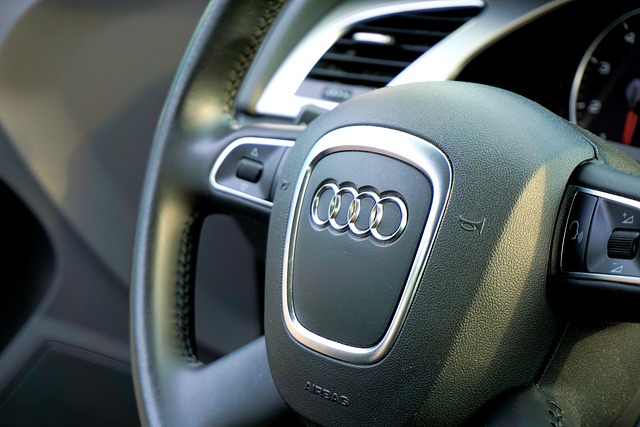“Uncovering the End-Stage Journey: Understanding PCP Claims in the UKThis article delves into the in…….
Category: Pcp Car Claims Uk
PCP Car Claims UK: Unlocking the Potential of Alternative Finance
Introduction
Welcome to an in-depth exploration of a revolutionary concept in the automotive industry: PCP (Personal Contract Purchase) Car Claims UK. This innovative approach to vehicle financing has gained significant traction, offering consumers and businesses alike a flexible alternative to traditional car ownership. In this comprehensive guide, we will navigate through the intricacies of PCP Car Claims, its global impact, economic implications, technological advancements, regulatory landscape, challenges, and future prospects, providing valuable insights for stakeholders in this dynamic sector.
Understanding PCP Car Claims UK
Definition and Core Components
PCP Car Claims UK, short for Personal Contract Purchase with Vehicle Claims, is a financial arrangement that allows individuals or businesses to lease a vehicle over a set period, with the option to purchase it at the end of the term. Here’s a breakdown of its key components:
- Lease Period: Typically, 2-3 years, during which the lessee drives and maintains the vehicle.
- Initial Payment (Deposite): A percentage of the vehicle’s price is paid upfront, followed by regular monthly installments.
- Monthly Installments: Fixed payments over the lease period, covering a portion of the vehicle’s value and associated costs.
- Balloon Payment or Purchase Option: At the end of the lease, the lessee has the choice to pay a final balloon payment to own the vehicle outright or return it to the lender.
Historical Context and Growth
The concept of PCP emerged in the UK in the early 2000s as a response to changing consumer preferences and economic conditions. It gained popularity due to its flexibility, lower initial costs compared to traditional car loans, and the ability to switch vehicles more frequently. Over time, it has evolved into a robust alternative finance model, particularly in the automotive sector.
Significance and Market Fit
PCP Car Claims caters to a diverse range of customers:
- First-time Buyers: It offers an accessible entry point into car ownership.
- Business Fleets: Companies can efficiently manage their vehicle fleets without long-term commitments.
- Young Drivers: Those with limited credit history or low disposable income find it more manageable than traditional loans.
Global Impact and Trends
International Influence
The impact of PCP Car Claims extends far beyond the UK borders, with significant adoption and adaptation across Europe and North America. Several factors drive its global appeal:
| Region | Key Factors | Market Size (Estimated 2022) |
|---|---|---|
| UK | Strong consumer trust, robust regulatory framework | £14.5 billion |
| Europe (Overall) | Diverse offerings, favorable tax policies in some countries | €350 billion+ |
| North America | Growing popularity for electric vehicle PCP schemes | $120 billion+ |
Global Trends Shaping PCP
- Digital Transformation: Online platforms streamline the application process, making PCP more accessible globally.
- Sustainable Mobility: Increasing demand for eco-friendly vehicles leads to tailored PCP schemes for electric and hybrid cars.
- Personalization: Lenders offer customizable plans, allowing customers to align payments with their financial goals and lifestyles.
Regional Variations
Different regions have unique approaches to PCP:
- Germany: Known for its strict regulations, offers a robust PCP market with a focus on transparency and consumer protection.
- USA: The market is fragmented, with varying state laws influencing PCP practices, but it’s growing rapidly due to flexible terms and a wide range of vehicle options.
- Emerging Markets (e.g., India, Brazil): PCP is gaining traction as an attractive financing option for affordable cars.
Economic Considerations
Market Dynamics
The UK PCP car claims market experienced steady growth in recent years:
- 2020: Despite the global pandemic, the market demonstrated resilience, with a 5% year-on-year (YoY) increase in new PCP agreements.
- 2021-2022: Post-pandemic recovery led to a surge in demand, with a projected 10% YoY growth in 2022.
Investment Patterns
PCP has become an attractive investment option for:
- Lenders and Financial Institutions: Offering higher returns compared to traditional loans.
- Dealers and Manufacturers: Providing a stable sales channel and revenue stream.
Economic Impact
- Job Creation: The sector contributes to employment in finance, sales, and automotive industries.
- Consumer Spending: PCP enables individuals to participate in the car ownership culture, boosting discretionary spending.
- Business Growth: Many startups have emerged, catering to specific niches within the PCP market, fostering innovation.
Technological Advancements
Digital Platforms and Apps
The digital revolution has transformed PCP Car Claims:
- Online Application Process: Customers can apply for PCP through dedicated websites or apps, receiving instant decisions.
- Real-Time Data Analysis: Lenders use advanced analytics to assess risk, set prices, and personalize offers.
- Mobile Wallets Integration: Seamless payment processing and management enhance the user experience.
Blockchain and Smart Contracts
Emerging technologies like blockchain offer:
- Transparency and Security: Secure record-keeping and smart contracts ensure transparent transactions.
- Streamlined Claims Processing: Blockchain can automate claims, reducing paperwork and processing time.
AI and Machine Learning
AI applications include:
- Predictive Analytics: Forecasting market trends, customer behavior, and risk profiles.
- Chatbots and Virtual Assistants: Providing instant customer support and personalized recommendations.
Regulatory Landscape
UK Regulations
The Financial Conduct Authority (FCA) regulates the PCP market in the UK, ensuring fair practices and consumer protection. Key regulations include:
- Consumer Credit Act 2015: Sets out rules for lenders, including disclosure requirements and cooling-off periods.
- General Data Protection Regulation (GDPR): Governs the handling of customer data, emphasizing privacy and security.
Future Regulatory Developments
- Green Financing Rules: As the market expands for electric vehicles, regulators may introduce specific guidelines for eco-friendly PCP schemes.
- Digital Regulation: With the rise of digital platforms, there’s a need for updated regulations to address new business models and data protection concerns.
Challenges and Considerations
Credit Risk Assessment
One of the primary challenges is accurately assessing credit risk, especially for customers with limited financial history or irregular income patterns. Lenders employ advanced scoring models and alternative data sources to mitigate this risk.
Claims Handling Efficiency
Streamlining claims processing is crucial to maintain customer satisfaction and operational efficiency. Technology, such as automated document verification and digital claim submission, can significantly improve the process.
Market Saturation and Competition
As PCP gains popularity, lenders face increased competition, driving the need for innovative products and improved customer service. Differentiation through personalized offerings and exceptional experiences becomes vital.
Future Prospects and Predictions
Market Growth and Diversification
The PCP Car Claims market is projected to continue its upward trajectory:
- Long-term Growth: With a growing economy and changing consumer preferences, the market size could reach £20 billion by 2027 in the UK.
- Product Diversity: Lenders are likely to expand offerings for specialized vehicles like electric cars, adventure sports utilities, and luxury brands.
Technological Integration
Technology will play an even more significant role:
- AI-driven Personalization: Advanced AI algorithms will offer tailored PCP plans based on individual financial goals and vehicle preferences.
- IoT (Internet of Things) Integration: Vehicles equipped with IoT devices can provide real-time data for dynamic pricing and risk assessment.
Sustainability Focus
The industry is expected to embrace sustainability further:
- Eco-Friendly Incentives: Lenders may offer lower rates or bonuses for customers opting for electric vehicles or eco-friendly maintenance practices.
- Circular Economy Model: Encouraging vehicle sharing, leasing, and recycling to reduce environmental impact.
Conclusion
PCP Car Claims UK has evolved into a dynamic and influential segment of the automotive finance industry, offering flexible solutions to diverse customer needs. With technological advancements, regulatory support, and a growing market, the future looks promising for PCP. Stakeholders can leverage these trends to drive innovation, expand reach, and create sustainable value in this exciting sector.
Maximising Your PCP Claim: UK Driver’s Comprehensive Guide
“Unraveling the mysteries of Gov Car Finance Claims: A Comprehensive Guide for UK Drivers. This arti…….
Mastering PCP Claims: A UK Comprehensive Guide to Maximising Compensation
“Unsure about navigating PCP claims in the UK? This comprehensive guide is designed to demystify the…….
Mastering PCP Claims: UK Residents’ Guide & Broker Role
“Unraveling the complexities of PCP (Primary Care) Claims in the UK is essential for both residents…….
Mastering PCP Claims: A UK Guide to Valid Submissions
“Unraveling the complexities of PCP claims in the UK is essential for anyone seeking financial suppo…….
Unraveling PCP Mis-selling: Guide to UK Claims and Scams Avoidance
“Discover everything you need to know about PCP Mis-selling with our comprehensive guide. This artic…….
Mastering PCP Claims in the UK: A Step-by-Step Guide
“Unraveling the complexities of PCP Claims in the UK: A Comprehensive Guide. This article offers an…….
Mastering PCP Claims: UK Process & Maximizing Compensation Strategies
“Unraveling the intricacies of PCP (Permanent Health Care) Claims is essential for anyone seeking co…….
Mastering PCP Claims in the UK: A Guide to Effective Navigation
“Unraveling the complexities of PCP claims is essential for both claimants and healthcare providers…….
Mastering PCP Claims in the UK: A Guide to Success with Close Brothers Car Finance
“Unraveling the process of PCP claims can be a complex task for UK drivers. This comprehensive guide…….









